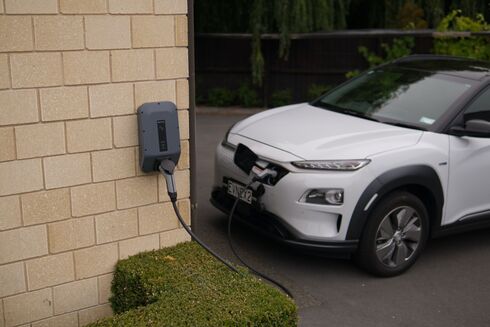
Two kinds of charging
14 September 2021

Hardly a day goes by without some announcement relating to electric vehicles (EVs) and cars running on alternatives to fossil fuels.
To a very large extent this is being driven by the Government as it prepares to host the global COP26 environmental conference in Glasgow this November.
It wants to demonstrate that it has a comprehensive strategy in place to meet its target for the UK to become net zero by 2050. So frequent are the announcements that one almost detects a sense of desperation.
Be that as it may, most developments fit one of two categories: improving the EV charging infrastructure and also charging of a different kind – paying for, and perhaps taxing, the electricity consumed.
Considering the former category first, the Site-Eco section of the blog has already highlighted difficulties that some EV drivers face in finding convenient, local and reliable charge points.
Since then, announcements have motored. There’s been a well-publicised initiative to design a charge point with a standard distinctive design, like the red phone boxes of yesteryear, which will presumably have to be rolled out on a nationwide basis.
Private sector firms are also revving up. Energy provider Shell aims to install 50,000 on-street charge points across the UK by 2025 through its ubitricity subsidiary to help motorists without off-street parking.
Interestingly, the government’s Office for Zero Emission Vehicles (OZEV) currently meets 75% of the cost of installing such on-street chargers.
New laws are also set to be introduced next year requiring the installation of EV chargers in all new-build homes and offices in England.
Elsewhere, BP has partnered with an in-car digital payments provider, the spelling of whose name – ryd – is as innovative as its technology presumably is.
The ryd app will be available in the UK by 2024 and allows drivers to pay for fuel, EV charging, car washes and other purchases on a single platform. (I always thought you weren’t allowed to use mobile phones on fuel forecourts, but presumably the EV areas will be segregated from any petrol or diesel pumps.)
So the infrastructure is set to grow, as is interest in the new vehicles. Indeed, data from the Society of Motor Manufacturers and Traders for August shows that sales of plug-in cars overtook diesel vehicles.
Mind you, overall sales volumes are still way below 2020 levels. Also, the second hand car and van market is booming – and not many of those sales will be for EVs.
However, the other element of charging – taxing the electricity consumed – has also been getting attention, albeit in a more muted way. If motorists switch away from petrol and diesel, how will the government replace the fuel duty revenue that it currently receives?
One suggestion mooted previously is that drivers will pay so much per mile, calculated via a 'black box' device in the vehicle or some kind of toll system.
Also, a recent press story pointed out an interesting detail in the Automated and Electric Vehicles Act of 2018, elements of which came into force in April. This includes the stipulation that any new car charge point must be able to send and receive data.
So in theory, a charge point in a home or business will be able to log the amount of electricity going specifically into a car’s battery, as against other appliances like washing machines, kettles or lighting. And apparently that means that any tax could also be added to your bill instantly at source.
• Over the weekend came yet another government announcement: new EV charging points in workplaces and people’s homes will be preset to switch off for nine hours each weekday at times of peak demand to avoid National Grid outages. Under regulations set to come into force in May, according to a press report, new home and workplace chargers will be set by default not to function from 8am to 11am and 4pm to 10pm. Public chargers and rapid chargers, on motorways and A-roads, will be exempt.
Apparently the user can override the default setting, but it almost smacks of a curfew, or even fuel rationing. The government really does need to address the bigger issue of prioritising investment in the UK’s green power generation infrastructure - and fast, if the drive to EVs continues at the pace it seeks.
Photo: Ed Harvey/Unsplash
● For more Site-Eco stories click here. And to subscribe for regular updates click here.

